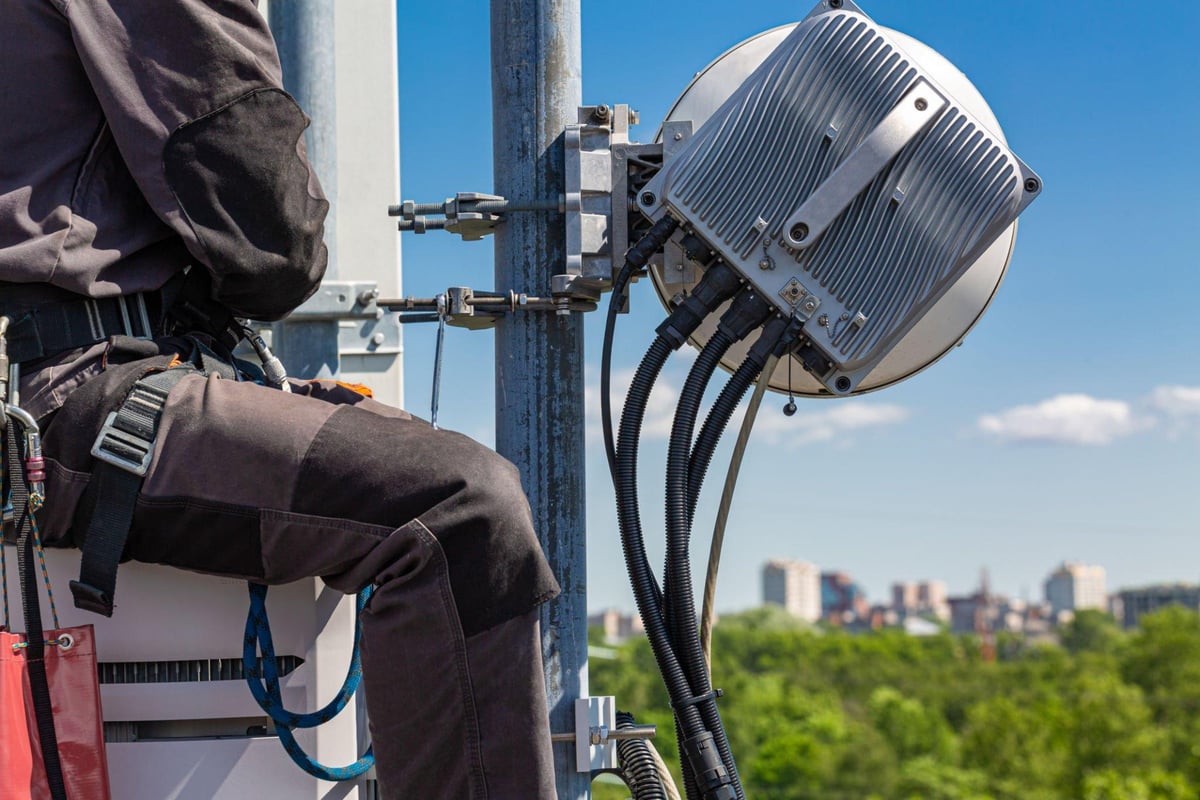
Financial aid (may be available)

Financial aid (may be available)

Financial aid (may be available)

Financial aid (may be available)
Embarking on a vocational journey brings the promise of a fulfilling career and financial stability. For those in Madison seeking to tap into the thriving telecommunications sector, becoming a Tower Technician presents an opportunity worth exploring. This blog post provides an in-depth look at what it means to be a Tower Technician, the training required, and how to choose the best classes. It also highlights the certification process, job prospects, and potential further training to enhance your skills.

Also known as Tower Climbers, Tower Technicians are responsible for the installation, servicing, and decommissioning of cell tower components. They play a crucial role in maintaining the connectivity that powers modern life, from mobile phones to emergency services communication systems. Their work often involves climbing towers, testing equipment, and troubleshooting network issues. Safety is paramount in this profession, as technicians work at significant heights and in various weather conditions.
To become a Tower Technician, you need to have a high school diploma or equivalent. Then you should enroll in a vocational training program that offers courses in areas like:
Basic electricity and electronics: Understanding these principles is essential for troubleshooting and repairing communication equipment.
Wireless communication: This equips students with knowledge about cellular networks, radio frequency (RF) technology, and broadband systems.
Safety training: Working at heights and handling electronic equipment necessitates thorough safety training.
Ensure the program you choose is comprehensive, covering both theoretical knowledge and practical skills necessary for the job.
When selecting a Tower Technician class in Madison, consider the following:
Course content: Ensure the program covers all necessary topics, like safety procedures, technical skills, and industry regulations.
Practical training: Look for classes that offer hands-on training. Real-world experience is invaluable in this line of work.
Instructor expertise: Trainers should have extensive industry experience and knowledge.
Class size: Smaller classes often mean more personalized attention and instruction.
A typical day in a Tower Technician class might involve a mix of classroom learning and practical exercises. You may spend part of the day learning about RF theory, for example, then use the rest of the day to apply that knowledge in a controlled environment. Practical, hands-on training is a significant part of the learning experience, preparing you for the realities of the job.
After completing your training, you'll need to get certified. The National Wireless Safety Alliance (NWSA) offers two certifications for Tower Technicians: Telecommunications Tower Technician 1 (TTT-1) and Telecommunications Tower Technician 2 (TTT-2). The certification process involves passing written and practical exams that test your understanding and application of the skills you've learned.
Once you've obtained your certification, you can start looking for jobs. Many Tower Technicians find work with telecommunications companies, contractors, and service providers. Networking with industry professionals and leveraging job platforms can help you find opportunities in Madison and beyond.
After becoming a certified Tower Technician, you may choose to further your education. Some opt to pursue advanced certifications like the NWSA's Antenna & Line Specialty Certification or the Rigging Certification. Others may explore related fields like HVAC and Electrical Engineering for broader career opportunities.
Becoming a Tower Technician comes with several benefits:
Growing Industry: The telecommunications industry is constantly expanding, offering numerous job opportunities.
Financial Stability: Tower Technicians often earn competitive salaries, providing financial security.
Career Progression: With additional training and experience, you can advance to supervisory or managerial roles.
While rewarding, the role of a Tower Technician also comes with challenges:
Physical Demands: The job is physically demanding, often requiring climbing and lifting heavy equipment.
Working Conditions: Technicians work outdoors, often in harsh weather conditions and at great heights.
Safety Risks: Despite rigorous safety training, the job comes with inherent risks.
To excel in this role, focus on:
Building Physical Stamina: Regular exercise can help manage the physical demands of the job.
Learning Continuously: Stay updated on industry trends and technological advancements.
Prioritizing Safety: Always adhere to safety protocols to minimize risk.
Becoming a Tower Technician can open doors to a rewarding career in the telecommunications industry. With the right training and commitment, you can play a crucial role in maintaining the connectivity that powers our modern world. As you embark on this vocational journey, remember to leverage platforms like Dreambound, the largest platform for students to find vocational training programs. It can provide you with all the information you need to find the perfect class in Madison.
Explore Dreambound's in-depth guides, each shedding light on the unique requirements and challenges in cities across the US. For more insights, be sure to check out our other guides.
Exploring a variety of professional opportunities? Dreambound has many extensive guides to help you make informed decisions. Check out these guides:
Dreambound's platform allows prospective students to find the right educational program for them through searching, filtering, and connecting with our extensive selection of career & technical education partners.
Dreambound has over 70 programs across healthcare, technology, business, and industrial trades. This includes programs such as Medical Billing, Cybersecurity, and welding.
Some of our schools offer financial aid for those who qualify. Many others offer payment plans, where you can pay the cost of class over time.
Yes, Dreambound offers many online programs. On Dreambound's search, you can filter by online, in-person, and hybrid (part online, part in-person).
Dreambound is completely free for you to use! We are supported by schools and organizations who pay to advertise on our website, so we can offer all of our career resources for free.